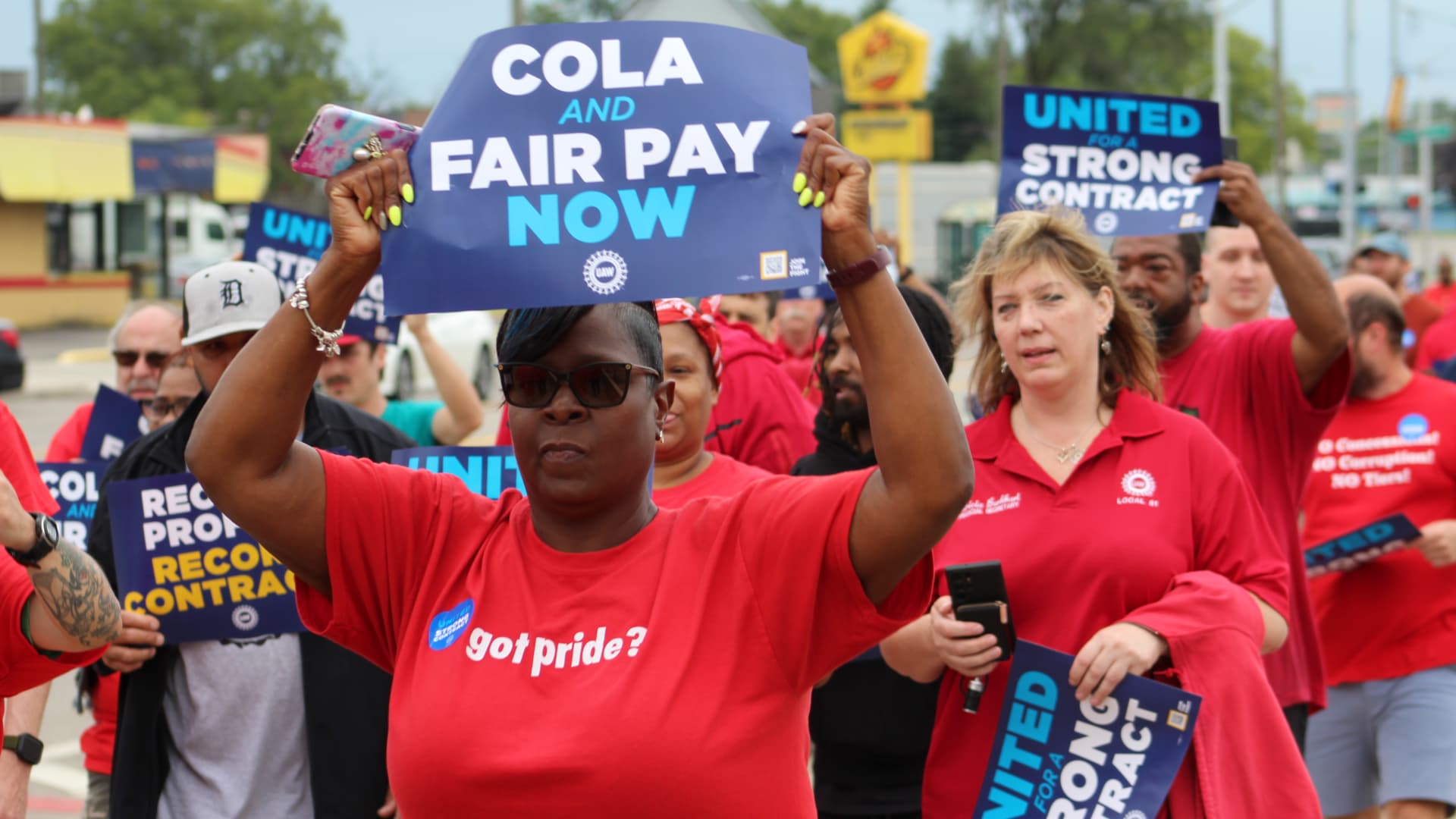
Members of the United Auto Workers union hold a rally and practice picket near a Stellantis plant in Detroit, Aug. 23, 2023.
Michael Wayland / CNBC
DETROIT — The United Auto Workers union plans to implement targeted strikes at certain plants against the Detroit automakers if tentative contracts are not reached with General Motors, Ford Motor and Stellantis, according to union officials briefed on the matter Tuesday night.
That plan could change based on how negotiations continue up until an 11:59 p.m. ET Thursday deadline, according to two sources who spoke to CNBC on condition of anonymity because the plans have not been made public to the union members.
Targeted strikes refer to work stoppages only at certain plants involving local contract issues that many, if not most, plants have. That’s compared to national strikes where all union members exit plants, which occurred four years ago during the last round of negotiations against GM.
UAW President Shawn Fain is expected to outline the strike strategy to the broader union membership at 5 p.m. ET Wednesday during a Facebook Live event.
UAW President Shawn Fain addresses union members during a Solidarity Sunday rally in Warren, Michigan, Aug. 20, 2023
Michael Wayland / CNBC
Fain and other leaders have continuously said they have a plan if deals are not reached by the deadline, including the potential of striking at all three automakers and having roughly 146,000 UAW members take to picket lines instead of factory lines.
Conducting targeted strikes can be complex, as it’s not clear how one plant will impact others. The actions could potentially send non-striking union members to unemployment lines, if their state allows them to collect any benefits due to being out of work as a results of a strike.
Companies also can counter by choosing to lock out workers (denying employment) or by hiring permanent replacement employees for striking workers.
Targeted strikes will save the union cash, as they won’t have to give “strike pay” to as many members from its $825 million strike fund.
The fund pays each eligible members $500 per week, which would mean it has enough cash for roughly 11 weeks if everyone went out on strike. However, that doesn’t include health-care costs that the union would cover, such as temporary COBRA plans, that would likely drain the fund far more quickly.
The UAW declined to comment on the strategy, which was first reported Tuesday by The Detroit Free Press. The paper said the plan was being called “stand-up strike as opposed to the sit-down strike in 1936 and ’37.”
Following reports of the union’s plan, Ford CEO Jim Farley said late Tuesday night the company remains “optimistic that we can reach an agreement with the UAW in the next two days.”
Farley said negotiators are sleeping at the company’s offices as they attempt to finalize a deal with the union.
